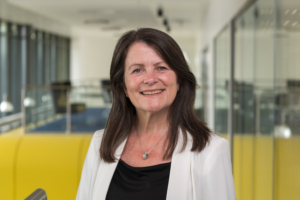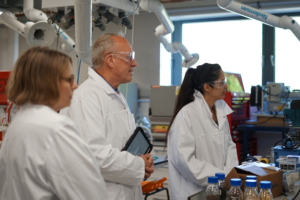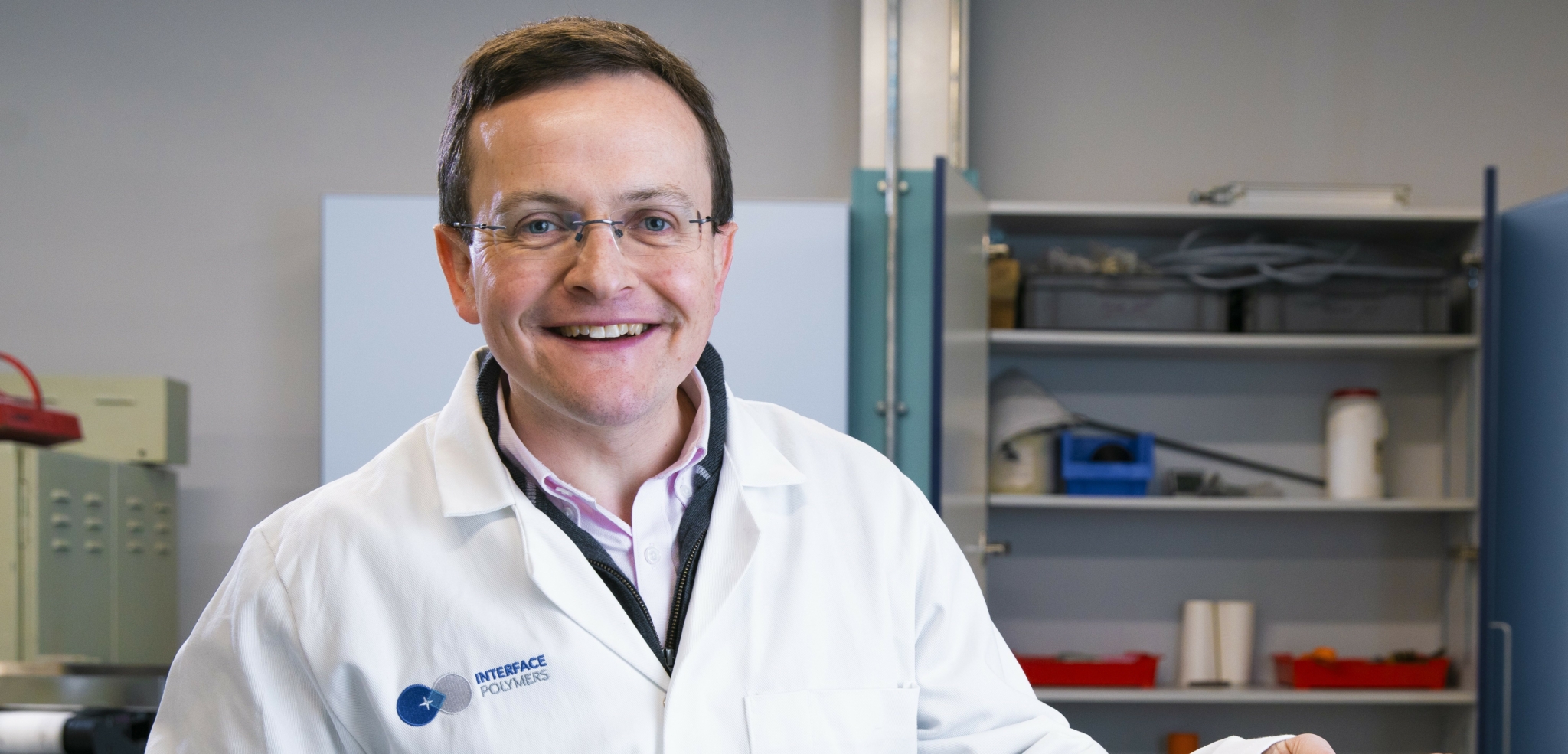The Innovate UK funded Midlands ICURe programme delivers training, funding and tailored support to teams led by university early career researchers. Up to £35,000 of funding is available to ‘get out of the lab’ and validate commercially promising ideas in the marketplace. If successful, a further £15,000 is granted to spin out the business.
The following case study is one of many success stories coming from the initiative.
Addressing the 100 million-tonne plastics problem
The global plastics industry favours materials that are almost impossible to recycle because they’re more commercially viable.
For decades, polymer scientists around the world have searched for ways to improve the compatibility of polyolefins with other materials. Many avenues have been explored but none have led to the ideal solution.
That was until a team at the University of Warwick’s Chemistry Department made a breakthrough.
Approach
In experiments, Professor Peter Scott and his PhD student Christopher Kay developed an additive which, when added to the most common plastics; polypropylene (PP) and polyethylene (PE), allowed the material to be recycled.
Midlands ICURe then helped Chris take his knowledge of what the science is capable of and transform that into a vision of what success might look like.
Through the Midlands ICURe programme (Innovation to Commercialisation of University Research) Dr Kay was able to access £500,000 of funding from Innovate UK to market test the concept with over one hundred potential customers, undertake additional materials testing and and ultimately go on to create a new commercial company, Interface Polymers Ltd, as a spin-out from the University of Warwick.
Outcome
- More than £2.5 million of funding secured (private investment and Innovate UK grant)
- Interface Polymers Ltd now employs 11 full time staff members
- The company is creating sustainable solutions for the plastics industry by working with customers, suppliers and business partners up and down the supply chain to develop new formulation solutions, both for the unmet needs of today’s markets and the requirements of tomorrow’s innovative applications.






